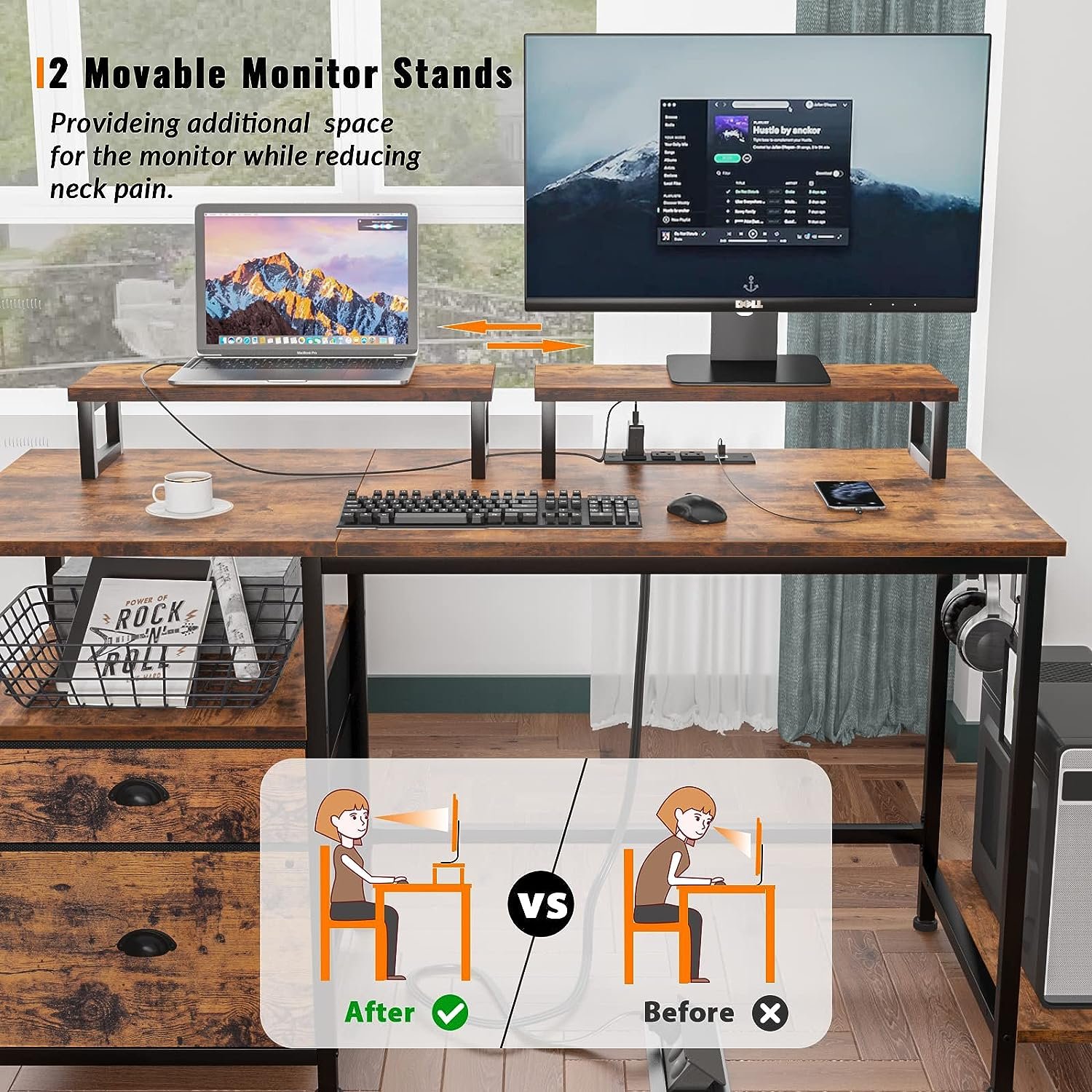In a new study from Deloitte, it has been revealed that most middle-managers do not want to return to the office full-time. Despite the desire of many CEOs in the financial industry to have their workers back in the office every day, only 13% of respondents said their ideal schedule was a return to the office five days a week. Additionally, 66% of remote workers stated that they would leave their job if they were required to go into the office full-time. This article explores the reasons behind middle-managers’ reluctance to come back to the office and examines the potential implications for businesses.
Read more about the Latest Money News
Main Heading
Few middle-managers want a full-time return to office or full-time remote
The debate surrounding remote work versus returning to the office has been a hot topic in recent years, and the COVID-19 pandemic has accelerated this discussion. As companies navigate the post-pandemic landscape, it is important to consider the preferences and needs of middle-managers, who play a crucial role in the success of any organization. Surprisingly, a new study from Deloitte has revealed that most middle-managers do not want a full-time return to the office or a full-time remote work arrangement.
Only 13% want to return to office five days a week
According to the Deloitte study, only 13% of middle-managers expressed their desire to return to the office five days a week. This finding suggests that the majority of middle-managers have grown accustomed to the flexibility and autonomy offered by remote work arrangements during the pandemic. It also highlights the need for companies to adopt a hybrid work model that allows for a balance between in-person and remote work.
Only 8% want to be fully remote
In contrast to the small percentage of middle-managers who want to return to the office full-time, a mere 8% expressed their preference for a fully remote work arrangement. This finding indicates that while middle-managers value the flexibility and freedom that comes with remote work, they still see the value in some degree of in-person collaboration and interaction.
Only 18% want to be in office 3-4 days a week
The study also revealed that only 18% of middle-managers prefer to be in the office 3-4 days a week. This suggests that many middle-managers are seeking a balanced approach that allows for a combination of remote work and in-office collaboration. Companies that offer flexibility in terms of where and when work is performed are more likely to attract and retain top talent in the middle-management level.
People required to go to the office full-time might just quit
While middle-managers are typically seen as the bridge between senior management and frontline employees, their preferences and needs are often overlooked. According to the Deloitte study, a staggering 66% of remote respondents stated that they would leave their job if they were required to go into the office five times a week. This finding highlights the importance of providing middle-managers with the flexibility and autonomy they desire in order to retain top talent and maintain employee satisfaction.
Pressure to go into the office more often
One of the reasons many middle-managers are reluctant to return to the office full-time is the perception that in-office workers have certain advantages. The study found that 52% of respondents believe that in-office workers earn more, 63% believe they are promoted more, and 65% believe they are more likely to become CEO. This perception creates pressure for middle-managers to go into the office more often in order to advance their careers. The study also found that men feel this pressure more acutely than women, with 68% of men stating that they feel the pressure compared to 55% of women.
Reasons for not wanting to come back to the office
Middle-managers have cited several reasons for their reluctance to return to the office full-time:
Difficulty balancing work and caregiving responsibilities
Many middle-managers have taken on increased caregiving responsibilities during the pandemic, whether it be caring for children, elderly parents, or other family members. Remote work has provided them with the flexibility to juggle these responsibilities more effectively. Returning to the office full-time would make it challenging for them to maintain this balance.
Preference for flexibility and work-life balance
Middle-managers have experienced the benefits of remote work, such as the flexibility to set their own schedules and work from anywhere. This has allowed them to achieve a better work-life balance and integrate work into their lives in a way that suits their individual needs and preferences.
Health and safety concerns related to COVID-19
The ongoing pandemic has raised concerns about the health and safety of returning to the office full-time. Middle-managers, like many employees, are worried about the risk of exposure to COVID-19 in the office environment. They may prefer the safety and peace of mind that comes with remote work.
Increased productivity and efficiency while working remotely
Many middle-managers have reported increased productivity and efficiency while working remotely. The absence of office distractions and the ability to customize their work environment have allowed them to focus and achieve better outcomes. They may hesitate to return to a full-time office setting if it means sacrificing the productivity gains they have experienced while working remotely.
Challenges and drawbacks of full-time office work
There are several challenges and drawbacks associated with full-time office work that middle-managers are keen to avoid:
Long commutes and transportation costs
Returning to the office full-time often means enduring long commutes and incurring additional transportation costs. Middle-managers may opt for remote work or a hybrid work model to avoid the stress and expense of daily travel.
Lack of autonomy and freedom
Working in an office environment can sometimes result in a loss of autonomy and freedom for middle-managers. They may feel that they are constantly being monitored or micromanaged, which can lead to decreased job satisfaction and motivation.
Office politics and hierarchy
Office politics and hierarchical structures can create a sense of competition and hinder collaboration among middle-managers. Many prefer the more egalitarian and collaborative nature of remote work.
Distractions and noise in the office environment
The office environment is often bustling with activity and noise, which can be a distraction for middle-managers who require quiet and focus to perform their duties effectively. Remote work allows them to create an environment that fosters concentration and productivity.
Middle-managers’ perspective on remote work
Middle-managers have identified several benefits of remote work, which contribute to their reluctance to return to the office full-time:
Improved work-life balance and reduced stress
The flexibility of remote work allows middle-managers to better manage their work-life balance and reduce stress. They can allocate time for personal responsibilities, such as exercise, family commitments, and self-care, without sacrificing their professional obligations.
Enhanced focus and concentration without office distractions
Working remotely eliminates many of the distractions and interruptions that are common in an office environment. Middle-managers can dedicate uninterrupted periods of time to their work, leading to improved focus and concentration.
Ability to customize their work environment to maximize productivity
Remote work empowers middle-managers to create a work environment that suits their individual needs and preferences. They can set up a dedicated home office, personalize their workspace, and eliminate environmental factors that may impede their productivity.
Opportunity for more efficient communication and collaboration
Contrary to the belief that remote work hinders communication and collaboration, many middle-managers have found that virtual tools and platforms facilitate more efficient and effective communication. Remote work encourages concise and purpose-driven interactions, leading to quicker decision-making and increased productivity.
Impact of remote work on team dynamics
While remote work offers many advantages for middle-managers, there are certain challenges associated with team dynamics and collaboration:
Challenges in fostering team cohesion and collaboration
Distance and physical separation can make it challenging to foster team cohesion and collaboration. Middle-managers must find creative ways to build and maintain strong team dynamics in a remote work environment.
Effective remote communication strategies and tools
Remote work requires the implementation of effective communication strategies and the adoption of appropriate tools. Middle-managers must ensure that their team members have access to reliable and user-friendly communication platforms to facilitate seamless collaboration.
Building trust and maintaining strong relationships remotely
Trust and strong relationships are essential for effective teamwork. Middle-managers must find ways to build trust and maintain strong relationships with their team members, even when working remotely. Regular check-ins, virtual team-building activities, and opportunities for informal communication can help foster trust and camaraderie.
Balancing individual work autonomy with team collaboration
The challenge for middle-managers lies in striking a balance between individual work autonomy and team collaboration. Remote work offers more freedom and flexibility, but it is essential to ensure that individuals remain connected and actively contribute to the team’s goals and objectives.
Read more about the Latest Money News
The role of technology in supporting remote work
Technology plays a crucial role in enabling and supporting remote work for middle-managers:
Importance of reliable and secure internet connectivity
In the remote work landscape, reliable and secure internet connectivity is paramount. Middle-managers rely on a stable internet connection to communicate with their team members, access important documents and files, and participate in virtual meetings and collaborations.
Utilizing collaboration tools and project management software
Collaboration tools and project management software are essential for middle-managers to stay organized, track progress, and facilitate seamless collaboration with team members. These tools enable real-time communication, document sharing, and task management.
Implementing virtual meeting platforms for effective communication
Virtual meeting platforms have become essential for remote work. Middle-managers must leverage these platforms to conduct team meetings, one-on-one check-ins, and virtual presentations. Clear communication protocols and video conferencing etiquette should be established to ensure effective and engaging virtual meetings.
Ensuring data privacy and cybersecurity measures
Remote work introduces new challenges in terms of data privacy and cybersecurity. Middle-managers must be vigilant in implementing and adhering to cybersecurity best practices, such as using secure networks, encrypting data, and regularly updating security software. Data protection and privacy regulations should also be respected to maintain the integrity and confidentiality of sensitive information.
Conclusion
As companies navigate the changing landscape of work, it is crucial to recognize the preferences and needs of middle-managers. The Deloitte study reveals that the majority of middle-managers do not want a full-time return to the office or a full-time remote work arrangement. Companies that embrace flexibility and offer a hybrid work model are more likely to attract and retain top middle-management talent. By adapting to the changing workplace landscape and embracing remote work as a viable option, companies can create an environment that fosters productivity, satisfaction, and success for their middle-managers.










